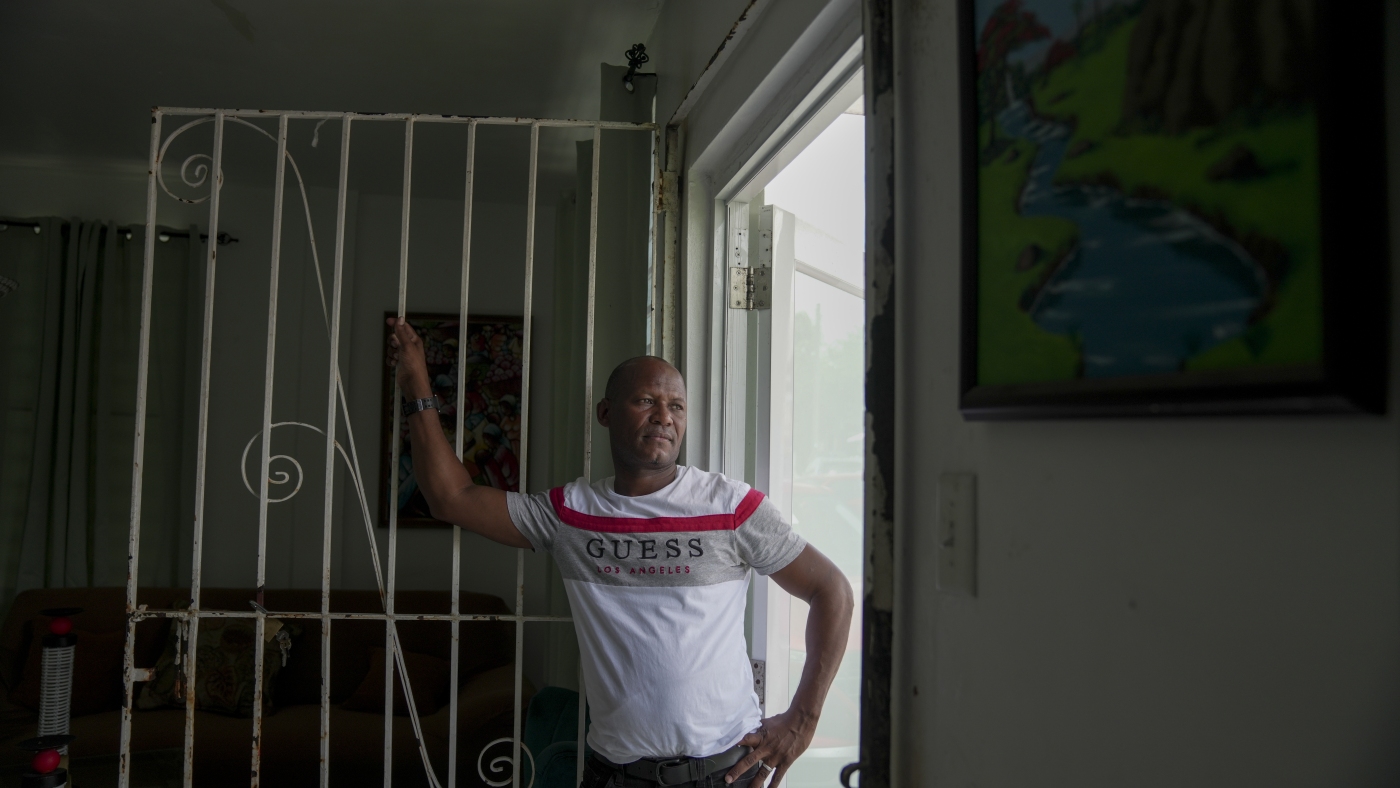The Dominican community in Barrio Obrero, Puerto Rico, is living in fear following increased immigration raids. Since January, these actions have dramatically altered daily life, leaving the once-vibrant neighborhood quiet and its residents hesitant to leave their homes. The heart of the Dominican community in Puerto Rico, known for its lively atmosphere, is now overshadowed by fear and uncertainty as families weigh their options amidst heightened tensions.
This article explores the impact of these raids on the Dominican community, highlighting personal stories, the response from advocacy groups, and the broader implications for immigration policy in Puerto Rico. It examines how families are adapting to the new normal and the efforts to restore a sense of safety and normalcy. Understanding these effects and the community’s reactions provides crucial insight into the human dimensions of immigration policies.
The Man of the Avocados: A Personal Story
Juan Vega Paredes, now known as ‘el hombre de los aguacates’ (the avocado man), has become a symbol of the immigration crackdown. Arrested while on his way to buy avocados, Vega Paredes’ story is one of many in Barrio Obrero. Since President Trump’s administration took office in January, approximately 500 Dominican migrants have been arrested in this area.
Vega Paredes, who came to Puerto Rico in 2021 seeking better opportunities for his family, now faces an uncertain future. His arrest and subsequent detention have highlighted the human cost of increased immigration enforcement.
‘Once I got intercepted, I thought, ‘Oh, this is because of Donald Trump,” Vega Paredes says. ‘I resigned myself.’
His experience reflects the anxieties of many undocumented immigrants in Puerto Rico, who now live in constant fear of deportation. Despite being married to a U.S. citizen and lacking a criminal record, Vega Paredes spent weeks in detention, a harrowing experience that underscores the indiscriminate nature of the raids.
A Transformed Barrio: Life on Edge
The increased ICE activity has profoundly altered Barrio Obrero. Restaurants are empty, church attendance is down, and fear permeates daily life. The once-lively streets are now quiet, with residents avoiding public spaces to minimize the risk of arrest. This transformation has not only affected the local economy but also the social fabric of the community.
Neighbors are on edge, and everyone talks about ‘immigración,’ the immigration agents,said one resident. This constant state of alert has created a climate of mistrust and isolation. Families are torn between the need to work and the fear of venturing outside, leading to increased stress and economic hardship.
Alliances to Push Back: Resistance and Support
In response to the raids, immigration rights advocates, lawyers, and politicians have formed alliances to challenge Trump’s policies. The American Civil Liberties Union (ACLU) of Puerto Rico is at the forefront of these efforts, working to protect the rights of immigrants and provide legal assistance to those affected by the raids. These alliances aim to counter the narrative of criminality and ensure that the community receives the support it needs.
Annette Martínez-Orabona, the executive director of the ACLU in Puerto Rico, emphasizes the discriminatory nature of the raids, stating that there is no justification for repeatedly targeting the same community. This sentiment is echoed by other advocacy groups who are working to raise awareness and mobilize support for immigrant rights.
Medical and Church Support: Filling the Gaps
Recognizing the community’s fear of seeking medical care, the medical guild is providing home visits to patients. This initiative ensures that people receive necessary healthcare without risking arrest. Churches, like the San Pablo Methodist Church, are also playing a crucial role by providing food, legal aid, and emotional support to migrants.
Dr. Carlos Díaz Vélez, the president of the Association of Physicians and Surgeons of Puerto Rico, affirms the commitment to saving people’s health and safety, while adhering to the law. This collaborative effort between medical professionals and religious institutions highlights the community’s resilience and solidarity.
El Corazón del Barrio: A Plaza in the Shadows
Plaza Antonio R. Barceló, once a vibrant hub in Barrio Obrero, now reflects the community’s subdued spirit. Susana Rosario, a street sweeper and former undocumented immigrant, laments the change, noting the absence of people in the streets. The plaza, a place where people once gathered to play dominoes and socialize, now stands as a symbol of what has been lost.
Rosario’s personal experience underscores the complexity of the issue, as she grapples with mixed feelings about immigration policies. While she desires the removal of those causing harm, she also empathizes with hardworking immigrants who contribute to the community. Her tears over the recent ICE arrests of her neighbors capture the human toll of these policies.
Conclusion: Resilience and Uncertainty
The immigration raids have undeniably reshaped daily life in Puerto Rico’s Dominican enclave, creating a climate of fear and uncertainty. Yet, amidst these challenges, the community demonstrates remarkable resilience, with alliances forming to protect immigrant rights and provide essential support. The story of Juan Vega Paredes, the efforts of advocacy groups, and the initiatives of medical professionals and churches all paint a vivid picture of a community determined to persevere.
Looking ahead, the future remains uncertain, with many families living in constant fear of deportation. However, the collective actions of residents, advocates, and allies offer a beacon of hope, suggesting that even in the face of adversity, the spirit of Barrio Obrero remains unbroken. Addressing this issue requires not only policy changes but also a deeper understanding of the human stories behind the headlines, ensuring that justice and compassion guide the way forward.

Leave a Reply